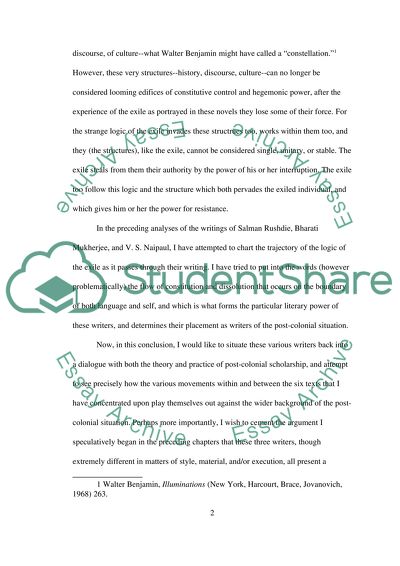Retrieved from https://studentshare.org/miscellaneous/1521342-the-literature-of-exile-and-imaginary-homelands-in-salman-rushdie-bharati-mukherjee-and-v-s-naipaul
https://studentshare.org/miscellaneous/1521342-the-literature-of-exile-and-imaginary-homelands-in-salman-rushdie-bharati-mukherjee-and-v-s-naipaul.


